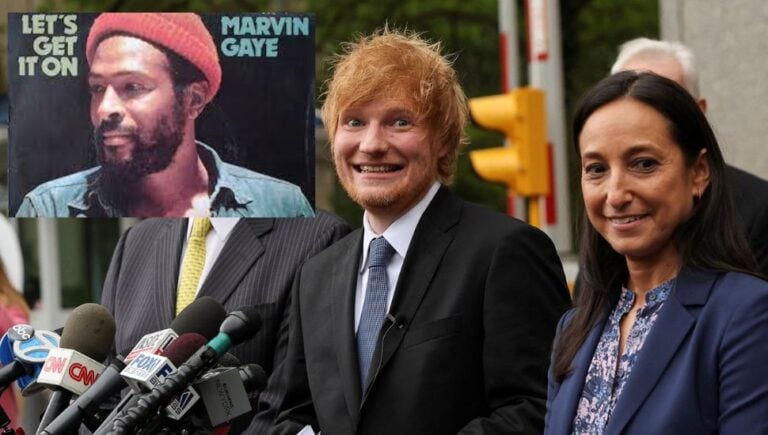In a resounding win for artists and songwriters everywhere, British pop star Ed Sheeran successfully defended himself in a copyright infringement lawsuit.
The case revolved around allegations that Sheeran’s hit “Thinking Out Loud” had copied key elements from Marvin Gaye’s 1973 soul classic “Let’s Get It On.” We delve into the details of this landmark case, which has been closely watched by musicians and legal experts alike.
Background of the Case
The plaintiffs in the case were the family of Ed Townsend, who co-wrote “Let’s Get It On” with Marvin Gaye. They claimed that “Thinking Out Loud” had substantial similarities to their song in terms of chord progression, harmonic rhythm, and specific melodies. Sheeran’s legal team, however, argued that the melodies were different, and the shared elements were common building blocks in pop music that should not be subject to copyright protection.
Highlights from the Trial
One of the most memorable moments of the trial came when Sheeran himself took the stand, passionately defending his work and even performing both songs in the courtroom. According to an AP report, Sheeran stated, “These chords are common building blocks that were used to create music long before Let’s Get It On was written and will be used to make music long after we are all gone. They are a songwriter’s alphabet, our toolkit — and should be there for all of us to use. No one owns them or the way they are played.”
The plaintiffs presented evidence such as a video of a concert in Switzerland, where Sheeran transitioned between the two songs. However, the jury ultimately sided with Sheeran’s defense, agreeing that the shared chord progression was a basic, unprotectable element in music.
Jury Deliberations and Verdict
The jury received the case and reached a unanimous verdict in favor of Sheeran after just under three hours of deliberation. In a quote from a Sheeran expressed relief at the verdict, saying, “I’m obviously very happy with the outcome of the case, and it looks like I’m not having to retire from my day job, after all.”
Implications of the Verdict
The outcome of the trial has significant implications for the music industry and the ongoing debate around copyright protection. Sheeran’s victory sends a clear message to artists and songwriters that they can continue to create and innovate without fear of baseless copyright claims. Sheeran’s lawyer, Ilene Farkas, stated, “I’m hopeful that today’s ruling gives songwriters more comfort that they can continue to create great music using the basic building blocks that were at issue in this trial with a little less fear of claims against them.”
As the dust settles on this high-profile case, it is clear that the music industry and the legal community will continue to grapple with the challenges posed by copyright protection in the digital age. But for now, Ed Sheeran and his supporters can celebrate a hard-fought victory that reaffirms the value of artistic freedom and creativity.
The writer used AI tools to publish part of this article. The Brag Media relies on journalists to fact check & edit all articles regardless of any AI tools used.


































